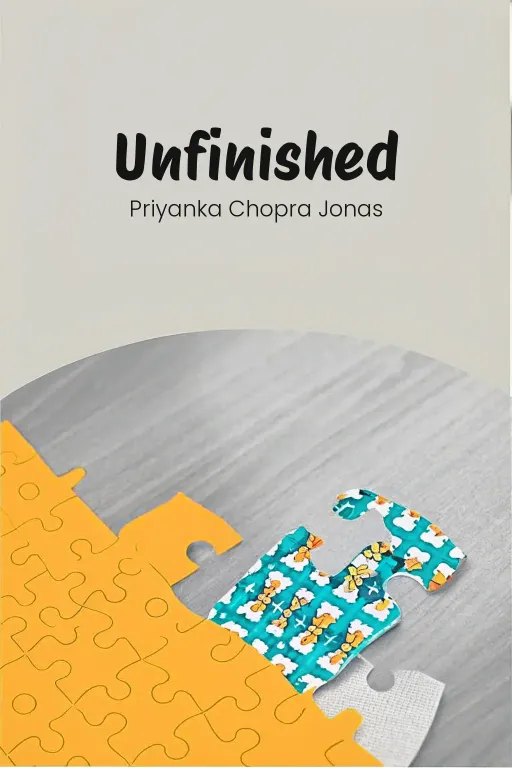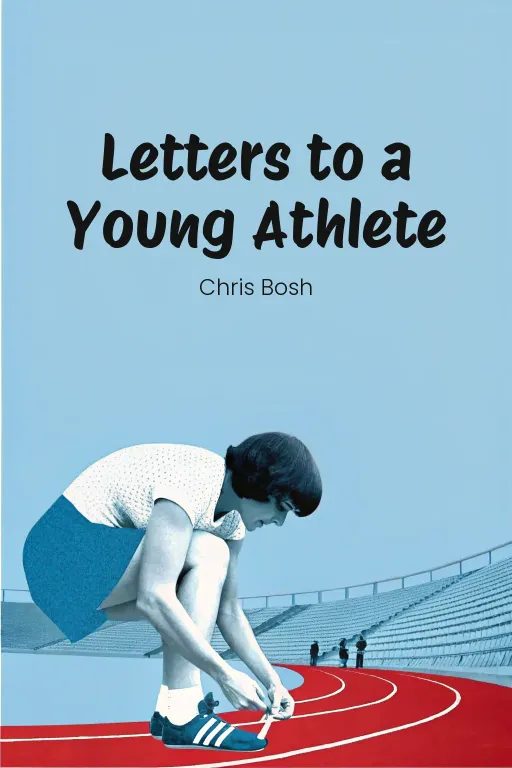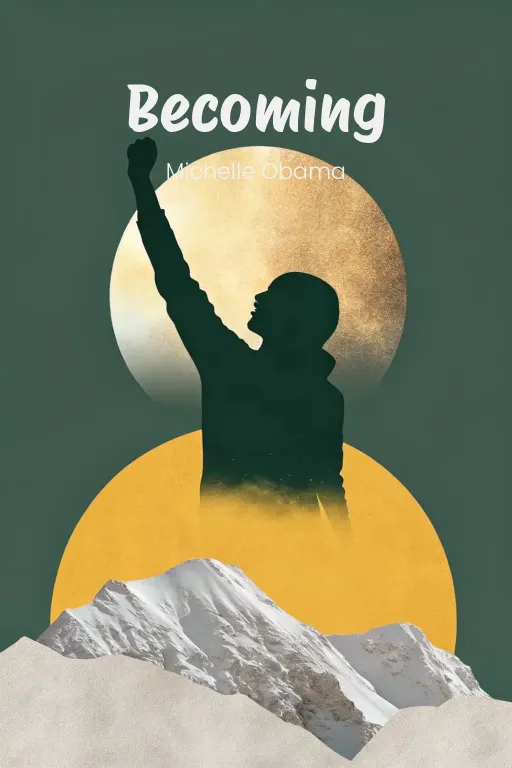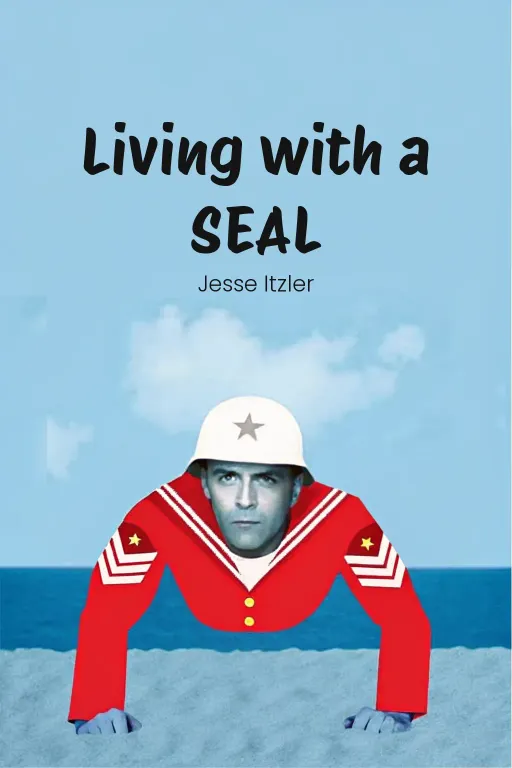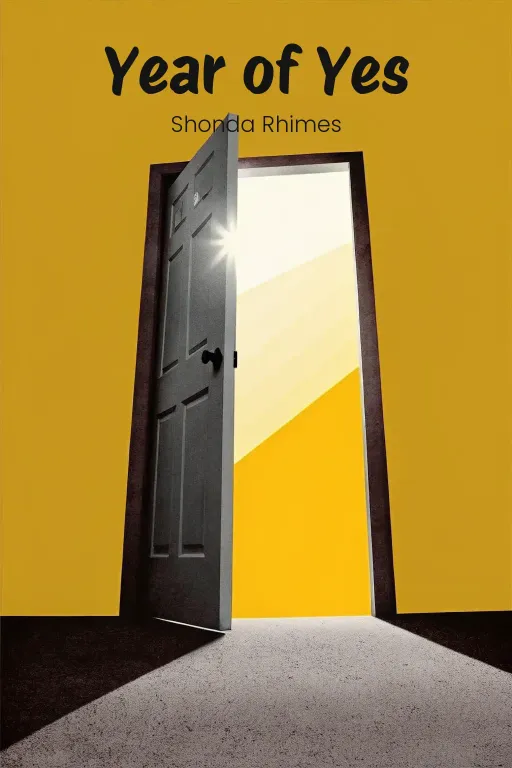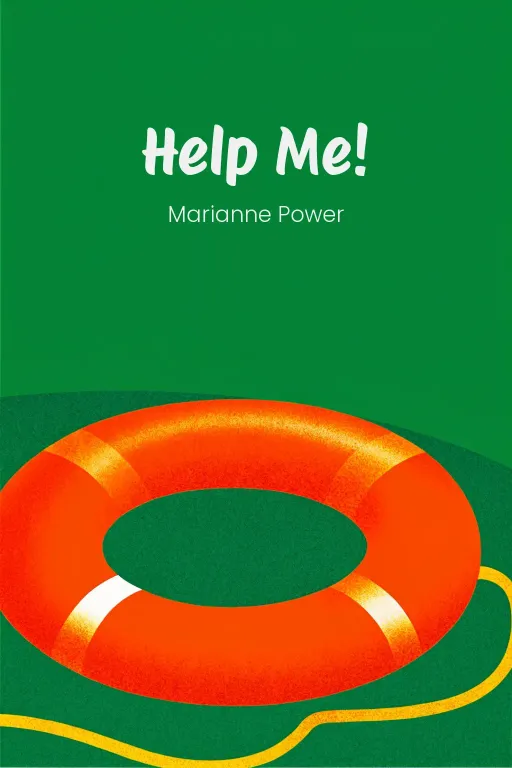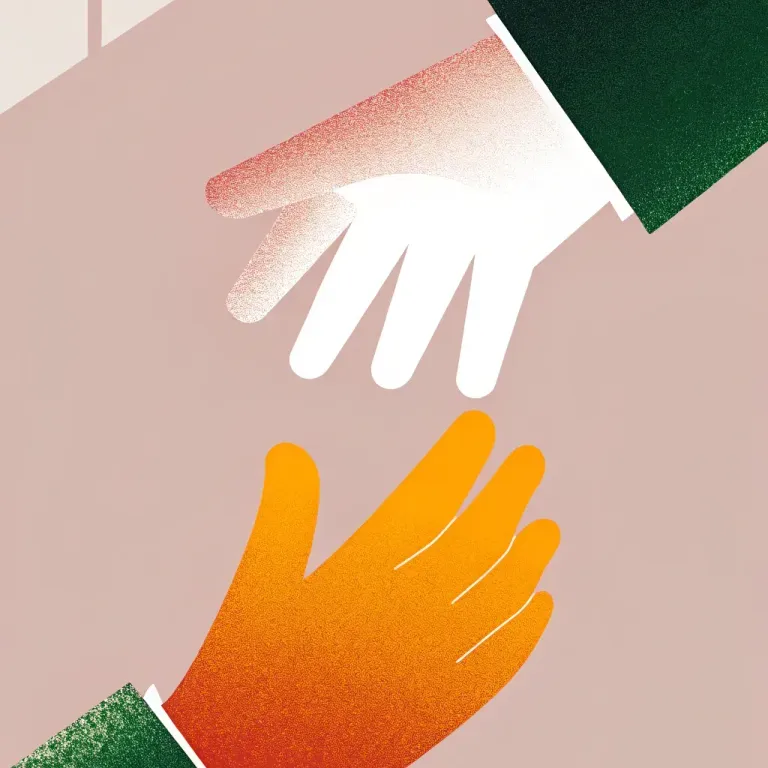
Beyond Self-Help: Find Real Joy Now
Podcast by Beta You with Alex and Michelle
One Woman's Quest to Find Out If Self-Help Really Can Change Her Life
Introduction
Part 1
Alex: Hey everyone, welcome back! Let me kick things off with a question: How many of us have, at some point, found ourselves in the self-help section of a bookstore, clutching a book that promises "the secret" to happiness, success, or just getting through the week? Today, we're diving into that world headfirst, but not with blind faith. We're going in with curiosity and a healthy dose of skepticism. Michelle: Exactly! Because, if self-help books worked the way they claimed, wouldn't we all be gliding through life on a cloud of productivity and inner peace by now? Instead, here we are, probably running late, a little stressed, and maybe wondering if we're the problem. Alex: That's where Marianne Power comes in. Her book, Help Me!, is a super honest account of her experiment where she tried to live by pretty much every self-help principle she could cram into a single year. Nude modeling, stand-up comedy, facing her financial issues head-on—she went all in, chasing that transformation. But, spoiler alert: the answers weren't exactly where she thought they'd be. Michelle: So, self-help with an added extreme twist, huh? What's the main takeaway here? Is it that self-help is a complete scam, or did Marianne just not do it right? Alex: Hang on to that thought, Michelle, because today we're breaking down Marianne's journey into three parts. First, we're taking a good, hard look at the entire self-help industry – the promises it makes, the potential downsides, and why so many of us are drawn to it. Michelle: Let me guess. Is it because, deep down, we all just want someone to tell us that our messy lives have a simple, fixable solution? Alex: Precisely! Then, we'll shift gears to explore how real change in Marianne's life came not from these shiny, perfect-solution guarantees, but from being vulnerable and building honest relationships. Michelle: Vulnerability – which basically means the exact opposite of what most self-help books prepare you for. Alex: Yep. And finally, the real irony: by learning to let go – not of her ambition, but of trying to be perfect in all the wrong ways – she actually found joy. So, buckle up, because it’s a story about flawed people, big hopes, and the sometimes messy, beautiful process of learning.
The Double-Edged Sword of Self-Help
Part 2
Alex: So, picking up on your question, Michelle, about whether self-help is a scam, or if Marianne just didn’t, you know, “do it right,” let's talk about what makes self-help so appealing in the first place. Marianne’s journey starts just like so many of ours, right? She was driven by dissatisfaction. She’s a successful writer, seems okay on the outside, but inside, she feels stuck, unhappy, really craving change. And that's the hook, isn’t it? Self-help promises not just a better life, but a step-by-step guide to actually get there. Michelle: A better life with an instruction manual. I can totally see the appeal. Life’s this messy, complicated thing with no FAQs. Who wouldn’t want someone to say, "Here's the formula, just follow it and you're set"? But… here comes my cynical side… how much of that promise is just snake oil dressed up with motivational posters? Alex: That's a fair question. But initially, these promises can feel almost... magical. Take her first challenge, Susan Jeffers’ Feel the Fear and Do It Anyway. Jeffers basically reframes fear as something you don’t fight off, but something you actually embrace. And Marianne jumps—literally—into this idea by plunging into an ice-cold pond in January. Michelle: <Laughs> Classic self-help symbolism. "Let's treat fear like a freezing lake and just jump in!" Did this actually help? Or was she just freezing cold and trying not to drown? Alex: A little of both, actually! She talked about the immediate shock and discomfort, the sheer panic, but also that feeling of exhilaration afterwards. And it's that moment, standing on the edge of her fear and forcing herself to leap, that set the tone for the initial optimism. She really wanted to believe that self-help was going to be her way out of this rut. And to be fair, those early experiences really did give her a sense of power and momentum. Michelle: Okay, I can see that, though I imagine it’s far easier when it’s January, and you're metaphorically decluttering your life one icy plunge at a time. But I'm guessing things didn't stay all sunshine and roses? Alex: No, not at all, and that’s when we start seeing a shift from like… you know, promise to pressure. The problem starts when self-help starts demanding this relentless strive for, well, perfection. These books and programs kind of suggest that transformation is this straight path, as long as you "stick to the script." Michelle: Right, like there's some universal checklist for happiness. Ice baths, check. Gratitude journal, check. What's next - naked yoga? Wait a minute... Did she actually do naked yoga? Alex: She did. That was one of the more… out-there challenges. It was supposed to strip away her inhibitions, literally, and help her actually embrace self-acceptance. But it didn't really work that way. She spent the whole time just wracked with self-consciousness, her inner monologue was on overdrive, critiquing herself instead of feeling, you know, liberated. Michelle: So instead of enlightenment, it was just another reminder of all her perceived flaws. Isn’t that completely ironic? The self-help promise is to fix you, but it requires you to obsess over everything wrong with you. Alex: Exactly. Self-help tends to frame us as, you know, 'projects' that need fixing, which actually reinforces feelings of inadequacy. For Marianne, each new book or program seemed to uncover another area of life where she didn't measure up. It became this exhausting cycle of striving, and not to mention, a financial strain. Michelle: Ah yes, there it is. The cost. All these books, seminars, retreats… it all adds up quick. And let's not ignore the irony of Marianne following Kate Northrup's, Money, a Love Story, to figure out her finances, while at the same time, spiraling into credit card debt because of all these self-help expenses. Alex: Yep, absolutely. Northrup's message – to express gratitude for your spending habits and facing your finances with less judgment – was actually helpful. Marianne did make progress in understanding why she spent the way she did. But the financial hole that she found herself in, just really highlighted the practical limitations of self-help. It's one thing to examine your relationship with money, and another to deal with just mounting debt. Michelle: I’m starting to see now why this was kind of a double-edged sword for her. On one hand, she was really challenging herself and facing her fears. But on the other hand, that same process seemed to feed into all her new insecurities – and costs. It’s almost like she was chasing this idea of “transformation” but just got further tangled up in the pursuit itself. Alex: Exactly. And here’s the real paradox – self-help champions empowerment and independence, and yet, it can often foster dependency. Dependency on the next book, the next retreat, the next sort of breakthrough moment. Michelle: Like being trapped on a treadmill that promises you'll reach the finish line if you just... keep... running. But there's actually no end. So, what shifted for Marianne? When did she realize that this endless chase wasn’t really the answer? Alex: Well, her turning point really came when she started letting go. Not abandoning self-help entirely, but releasing this constant pressure to “fix” herself. For Marianne, real growth really came from connection, vulnerability, and also accepting her imperfections. It wasn’t about completing every single challenge or achieving, you know, some ideal version of herself. It was more about just recognizing her humanity and actually finding joy in the messy, unfinished parts of life.
The Role of Vulnerability and Human Connection
Part 3
Alex: This really sets the stage for understanding the limitations of self-help, doesn't it? This shift from relentlessly trying to “fix” ourselves to actually seeking connection and just embracing imperfection… that brings us to a key theme: the role of vulnerability and human connection. Marianne’s story shows us that true growth isn't something you achieve alone; it happens through shared experiences, authentic relationships. Michelle: Exactly, a refreshing pivot! Instead of, you know, just ticking off goals from some personal improvement checklist, Marianne starts to explore what it means to be, well, messy, human, and—dare I say—acceptably flawed. So let's talk about this rejection therapy. I mean, part of me thinks it sounds like a form of masochism, but another part thinks it's pure genius. What exactly was she thinking, stepping right into that hornet's nest? Alex: Well, rejection therapy is one of the most compelling parts of her journey precisely because it is pretty counterintuitive. It's based on this idea, right, by Jason Comely: to intentionally seek rejection every day to build resilience. Marianne really dives into this by deliberately setting herself up for "no" moments. It's an exercise in courage and in, ultimately, reframing failure. Michelle: So, I’ve got to ask, did it actually help? Or was this, you know, public humiliation disguised as some kind of emotional boot camp? Alex: It helped, hugely. Think about one of her experiments—walking into a café and just asking for a free coffee. Predictably, the barista says no, and initially, she felt awkward, really exposed, that sinking feeling of embarrassment that we all dread. But then something transformative happened. She realized that her fear of rejection, which she’d spent years tiptoeing around, was actually far worse than the rejection itself. It didn’t shatter her. It was just… a moment. Michelle: And this broke some kind of spell, right? I mean, that childhood memory she shares about the two Lucys—holding her fate in their hands on the playground and deciding she wasn’t "in." It’s heartbreaking, but it’s also so relatable. Rejection at that age kind of burns into us and morphs into this lifelong need for validation. Those little moments grow teeth. Alex: Exactly, and that’s what made it so transformative. Marianne wasn’t just desensitizing herself to the word "no." She was dismantling this deeper belief that rejection equaled failure, or worse, that it defined her worth. Each deliberately awkward moment peeled back a layer of self-doubt. And even better than that, she actually started connecting more with people. These small acts of vulnerability—whether it was striking up odd conversations or laughing about her botched requests—sparked genuine exchanges. Michelle: Okay, so there's something oddly freeing, it seems, in embracing awkwardness as inevitable. But I'm guessing rejection therapy wasn't all fun and, you know, coffee shop antics? Alex: Oh, no, not at all. In fact, what makes this part of her journey so compelling also makes it pretty painful to read. Marianne had to really wrestle with some old emotional scars. But instead of running from those buried feelings – and we all have them – rejection therapy forced her to sit with them and, crucially, rewrite how she perceived those moments from her past. She found strength by realizing she could be rejected… and still be okay. Michelle: Which brings us back to connection. Vulnerability, sure, it helps us heal our own wounds, but it also forges unexpected ties with others. Hearing Marianne recount those coffee rejections and the camaraderie born from her awkwardness—it’s a reminder that imperfection makes us approachable, not broken. Alex: Absolutely. And this theme carried into another transformative moment for her: the sudden passing of her Uncle Gerald. He was this warm, funny, really grounding figure in her life—a man who embodied human connection and generosity. Dealing with that loss just brought her face-to-face with what truly mattered. It shifted her focus from individual striving to shared humanity. Michelle: The family wake in Ireland—you can almost feel the dualities of it all. Grief and connection. Loss and laughter. And maybe the lessons there were ones no book could teach her? Alex: Precisely. The wake offered her something no self-help practice she had tried actually could: a shared space, a really safe space, of vulnerability. Everyone there was openly grieving, celebrating Uncle Gerald together. It wasn’t about fixing or escaping emotions; it was about holding those emotions collectively. Marianne realized that the unpolished, imperfect love within her family was what anchored her through life’s uncertainties. It wasn’t another checklist solution—it was real, grounding connection. Michelle: It’s sobering, isn’t it? Here we are, all scampering to “master mindfulness” or, you know, “unlock abundance,” only to find the antidote to our existential flailing sitting at a family wake or asking for free coffee. It makes everything else feel almost overengineered. Alex: And Marianne’s journey just drives that home. Take group therapy, for instance. Books or gurus often position transformation as a solitary path, but group sessions, like those inspired by the Hoffman Process, they show the immense power of collective vulnerability. In these settings, Marianne wasn’t just working through painful memories alone; she was sharing them in a space that reminded her—and everyone else—just how universal those feelings are. Michelle: You know, this reminds me of an old metaphor: wounds are like cracks, and that light people talk about ‘getting in’—it only happens when you stop spackling over those cracks. She stopped patching everything, allowed herself to really feel, and in doing so, let some of that light in. Alex: Exactly. Authenticity grows from those cracks, not from perfect façades. Whether it was laughing about rejections, grieving collectively, or uncovering shared struggles in group therapy, human connection became her greatest teacher. It taught her to quiet the perfection-seeking voice in her head and accept life as messy, heartbreaking, and beautifully unpredictable. Michelle: And all those messy stories—their unique irony is that they’re kind of what make us lovable, aren’t they?
From Striving to Being: Embracing Imperfection
Part 4
Alex: Exactly and this shift, right? This move away from chasing perfection and towards actually embracing imperfection, that’s really where Marianne’s story becomes clear At its core, she realizes life isn’t about “fixing” herself to fit into some ideal mold, it's about truly living in the present, you know, experiencing the beauty of life as it is, unfiltered, and accepting herself completely This pivot? It brings us to one of the key lessons she learned: mindfulness, really, living in the now Grounded in Eckhart Tolle's teachings. Michelle: Ah, yes, The Power of Now A book so meditative and, honestly, a bit intimidating, that the title feels almost like a direct order! So, how does Marianne make that leap? Going from obsessively planning her transformation to actually letting go and just being present? Alex: Well, Tolle’s philosophy, it’s incredibly simple, yet profound He talks about that most human suffering comes from our obsession with the past or worrying about the future Sound familiar? Marianne was totally stuck in both She was plagued by old rejections and constantly measuring her actions against this perfect future self When she starts practicing mindfulness, it’s like finally stepping off that never-ending treadmill She talks about these moments of pure connection to the world, like when she was in Ireland with her friend Gemma. Michelle: Right, those long walks along the coastline Sea air, crashing waves… Sounds like an advertisement for serenity But, I’m guessing this was more than just travel for Marianne? Alex: Absolutely The beauty of those surroundings -- or, more importantly, her ability to truly see them -- represents this mental shift for her Before, she’d be preoccupied “Am I getting better? What's next on my list?" But then, she was simply… present, walking with no other goal than just being there in the moment And that’s mindfulness: stepping out of that constant inner critic in your head and tuning into life as it's happening. Michelle: Got it Instead of just powering through life on autopilot, she finally paused long enough to really feel what was right in front of her It makes sense, though, this whole awareness thing sounds so much easier than it actually is Did Marianne find mindfulness intuitive? Or was it a real effort, learning to actually wrangle her own busy brain? Alex: Oh, she definitely struggled! Mindfulness isn't just a switch you flip It's a practice Someone as driven as Marianne, learning to quiet that constant self-chatter, that took effort But she started noticing little changes over time Like, she recounts this vivid example that she watches a squirrel running across her garden one day Just this simple, joyful moment Before, she would have totally missed it while rushing to the next task But in that moment, she stopped to watch and she just felt sheer gratitude. Michelle: A squirrel as a mindfulness guru Didn't see that coming! But I get the metaphor It's those everyday little encounters that we usually ignore that actually hold real meaning So, would you say this was a turning point? This small shift in perspective unleashed the big epiphany? Alex: I’d say it was more of a culmination Mindfulness alone didn’t fix everything, of course, but it allowed her to really engage with her life, even with all its imperfections It gave context to the Louise Hay’s teachings on self-love and helped her soften that inner critic Instead of obsessively chasing self-improvement for validation, she started to embody this quiet confidence, right? Rooted in self-acceptance and genuine connection, rather than just achievements. Michelle: Self-acceptance Another concept that seems charming, until you try it for yourself Hay’s philosophy of affirmations, I know it has its critics Was Marianne reciting "I am worthy" in the mirror every morning? Please tell me this didn’t turn into some weird pep rally for one. Alex: She did try affirmations, yeah, but she was skeptical Louise Hay frames self-kindness as actively training yourself by repeating positive statements, even if you don't believe them at first And while Marianne didn’t immediately buy it, she really responded to Hay’s broader message, which was: stop treating your flaws as fatal Stop approaching life as if ticking boxes will eventually make you worthy. Michelle: It’s almost like Marianne had been carrying this invisible scorecard for years, you know, keeping track of wins and losses to decide her worth Was ditching that mindset easy? Or was it another uphill battle against her inner perfectionist? Alex: Definitely not easy There's this “really” raw moment in therapy where Marianne breaks down and admits, "I don't know what's wrong with me." It's heartbreaking because it's not about facing failure, it’s about unpacking how she had defined herself by it But being with those vulnerable emotions, and having them met with compassion, not judgment, you know, it was transformative Her sense of value started becoming something intrinsic, not conditional. Michelle: Conditional versus intrinsic self-worth—now that's a game changer I think so many of us measure ourselves using that conditional framework: "I'll be good enough if I get that promotion If I nail that project If I lose five pounds." Rewiring decades of that… that’s a lot. Alex: Absolutely And what “really” hit home for it was realizing that her value -- and her happiness -- weren’t tied to these milestones Instead, true fulfillment came from appreciating the small moments, like laughing with friends or those walks in Ireland She learned to let life be messy, rather than trying to control everything And by letting go, she found a freedom she hadn’t felt in years. Michelle: So, instead of striving for this ideal version of herself, she starts thriving in the imperfect reality of her real life It's a relief, “really” That being human isn't just completing the checklist, it’s about showing up It's messy, full of flaws, and real. Alex: Exactly Marianne's story doesn’t end with some perfect “happily ever after.” Instead, it’s about finding joy in the imperfections, finding connections that give life meaning That’s what makes her journey so important.
Conclusion
Part 5
Alex: So, to bring it all together, Marianne Power's journey really lays bare the tricky nature of self-help. On one hand, it's motivating, insightful—it can give you the push to confront your fears and try new things. But it can also tap into your insecurities, making you feel like you're a project that always needs work, which can “really” hit your wallet and your emotions. Michelle: Exactly. And what Marianne does brilliantly is, she steps back from the endless self-improvement to-do list and starts embracing vulnerability. Through things like rejection therapy, group support, or even just grieving with her family, she discovers that true growth isn’t about becoming perfect. It’s about connecting with others. Alex: Absolutely. What she ultimately shows us is incredibly simple but powerful: it's okay to be flawed, to not have all the answers. Real happiness isn’t hiding in the next self-help guru or expensive workshop. It’s here, now, in the raw, unedited parts of our lives. Michelle: So, maybe the lesson isn’t to ditch self-help altogether, but to approach it with a healthy dose of skepticism. By all means, learn from it, but don’t let it convince you that you’re somehow broken as you are. Because, as Marianne demonstrates, true thriving is less about "fixing" yourself and more about just being yourself, flaws and all. Alex: On that note, we encourage you to really think about your own journey. Are you relentlessly chasing perfection in some area of your life, but missing the beauty in your imperfections? Maybe it's time to pause and ask yourself if you're striving—or if it’s time to simply be.


